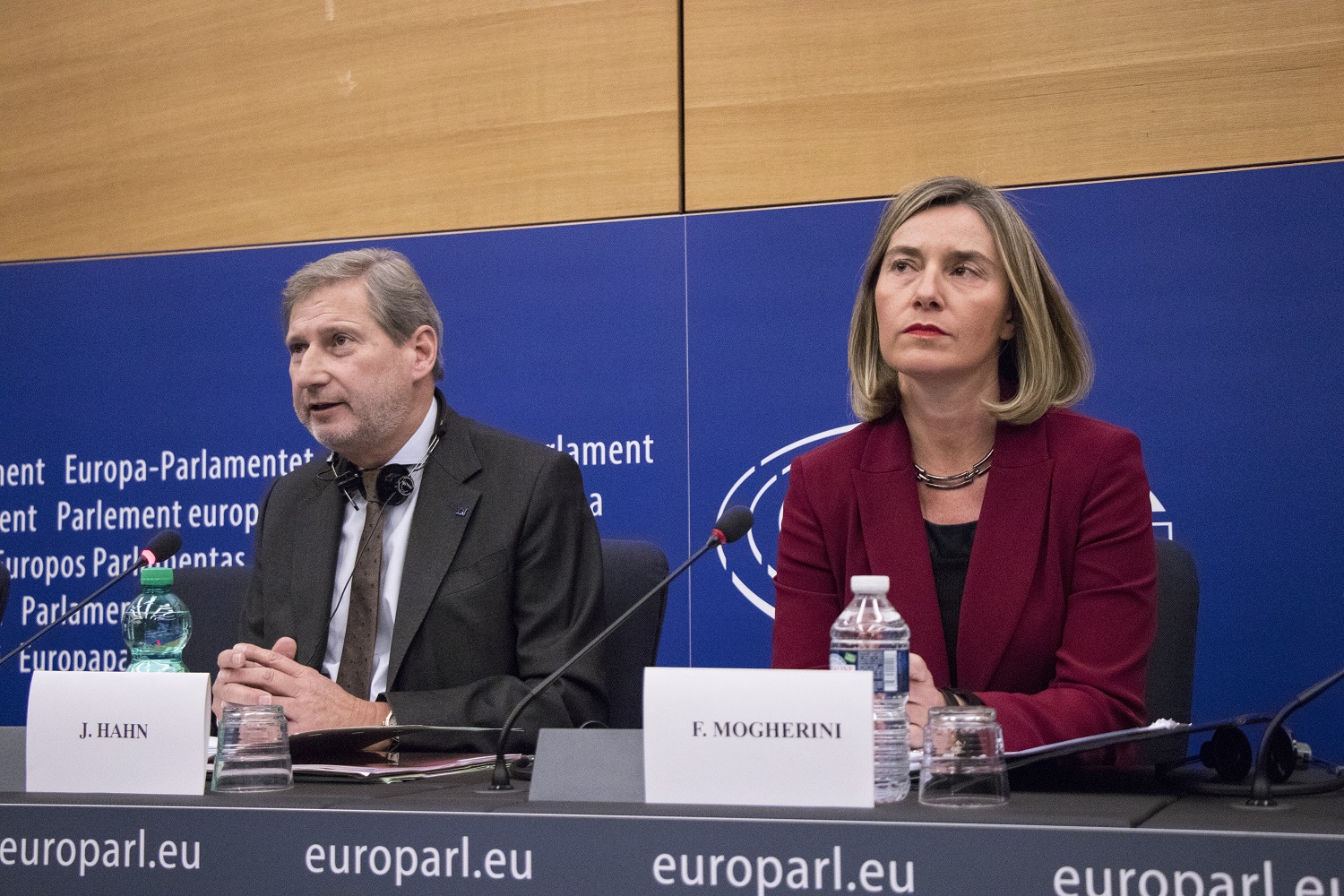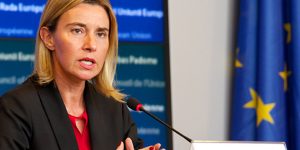Brussels, 6 February 2018
[Check against delivery!]
Merci. Thank you very much.
Let me start by assessing the obvious: namely that the Western Balkans are part of Europe geographically, within the Member States of the European Union from a geographical point of view. The Western Balkans share the same history as the members of the European Union, the same cultural heritage, the same challenges, the same interests, the same opportunities. And I would say that it is clear today – and this is our message – we will share a common future inside our European Union. This is the key political message that comes out of the strategy we have just adopted in the College – the Western Balkans Strategy, a clear path for the Western Balkans, all our six partners in the Western Balkans, to finally join the European Union.
Over the last three years, we have already achieved results -that were impossible to imagine when we started our mandate – in relation to each and every of the six and the region as a whole. Our investments are increasing in the entire region. Our trade is constantly growing. Our security is more and more connected. Our foreign policy is more and more coordinated. Let me just mention that two out of the six – Albania and Montenegro – are 100 percent aligned with the foreign policy of the European Union.
And I could continue with a lot of examples, not only of the problems we can and have to prevent together, but also of the opportunities that our people can explore at full only if we do that together. We have seen this repeatedly over the last years. We have seen this when we have managed together the refugee crisis flow through the Western Balkans. We see this when we handle and we tackle the security challenges related to radicalisation or the return of the foreign fighters. We see the economic interconnections and we see how much our people benefit from any opportunity we have of working together.
This strategy today gives a shared, unequivocal concrete perspective for EU integration for each and every one of our six partners, obviously on merit based processes that are very well known. Because, of course, there is clear need for reforms, so that citizens can enjoy the same rights, the same protections, and the same standards as the citizens of the European Union.
And we have seen and we are seeing a lot of reforms ongoing in the region with a determination that tells us all a simple truth: that the people of the Balkans and the leaders of the Balkans have made a clear choice – the choice of bringing their countries inside the Union. Each at its own pace, each at its own time – but the sense of direction is set clearly on their side. And today we are telling them we have made the same choice, the perspective is very clear for us as well.
I know that there have been a lot of talks about a date – 2025. So I will tackle this issue from the outset. It is clear for us that this is not a target date, this is not a deadline – but this is a perspective. The text of the strategy is very clear. It is a realistic perspective to conclude – complete – the accession process for those that are currently negotiating, but also for others that might start negotiations in the near future and, personally, I would expect others to start negotiations in the coming months.
Let me conclude by saying that we have today not just adopted a strategy but also opened a certain path that in the coming months will lead us to further decisions and further steps. The Commission Annual Reports will come out in April; we will have the EU Western Balkan Summit in Sofia in May – 15 years after the Thessaloniki; and ultimately possible Council decisions in June.
The strategy also supports this agenda with very concrete initiatives – six of them. I believe Commissioner [Johannes] Hahn will elaborate more on them, but they cover all the key areas of our common work: rule of law, security, social and economic development, connectivity, and digital agenda – that would for example bring the costs of roaming down, which is something extremely important and I think especially for the dynamic, young population of the region – and support for reconciliation and good neighborly relations.
So the months ahead will be intense, will be ambitious, will be – hopefully – months of a turning point that will be remembered in the history, I believe, of the European Union. Because this is also about a choice of the European Union’s future. It is part of our work on the future of Europe, as the President [Jean-Claude Juncker] said in September and as the strategy reiterates: the European Union in the future will potentially have new member states. The future of the Union is not bound to be at 27. It can be at more than 27. And this is a preparatory work that on our site we are setting up to get ready for this. Obviously, this needs the same readiness and the determination on the side of our partners in the region.
So the months ahead will be – as I said – intense, ambitious. 2018, especially the first six months of the year, can be a turning point – as the moment when progress towards the European Union’s membership becomes irreversible and tangible for all. Our message is: let us make it happen, we are together in this. It requires consistency, courage, determination – we are there for that. And let us bring the Western Balkans inside the European Union not in a faraway future, but in our generation, with consistent work to be continued.
Video: https://ec.europa.eu/avservices/video/player.cfm?ref=I150628




